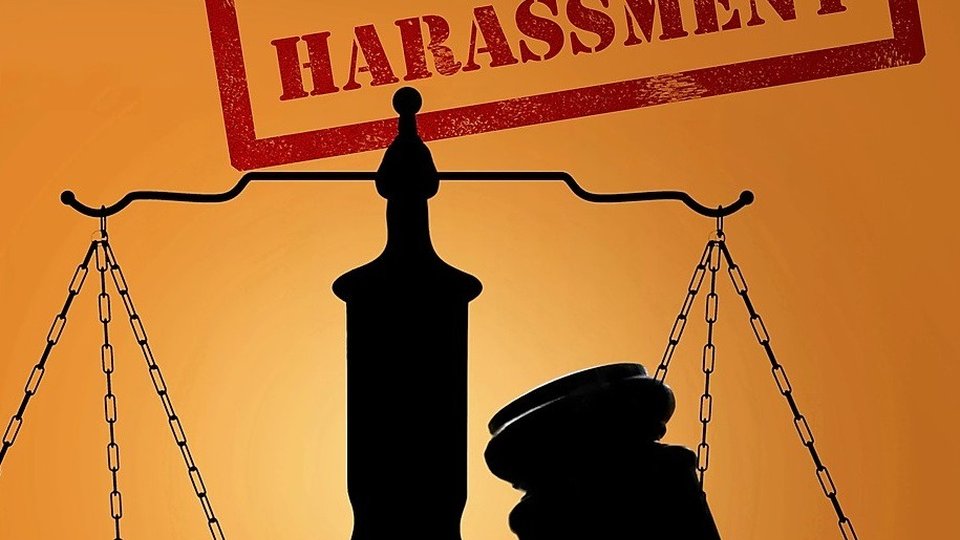Staffing
7 non-negotiable items for your restaurant's sexual harassment policy
Society Insurance Human Resources Manager Krista Arnhoelter shares seven elements that must be included a brand's sexual harassment policy.

April 14, 2021
The pandemic may have affected a lot of things in daily restaurant life, but sexual harassment continues, just as it does across all areas of our culture. The question is, has your business forgotten the need to solidly nail down what you will do if an incident occurs that you, as a business operator, must handle?
 |
| Krista Arnhoelter. (Provided) |
As many as 90% of women and 70% of men in the restaurant industry have experienced some manner of sexual harassment, according to data cited in the Harvard Business Review by Society Insurance Human Resources Manager Krista Arnhoelter.
The eye-opening insight highlights the importance of a restaurant brand's sexual harassment policy, which as restaurateurs know must be in solidly in place and updated to keep workers and the company that employs them safe.
Toward that end, Arnhoelter provided a list of seven items that are required within a brand's sexual harassment policy:
- Definition of sexual harassment in the workplace: Your policy must include a clear definition of sexual harassment. The Equal Employment Opportunity Commission has clear guidelines online to use in your policy. Discuss different scenarios and give various examples of what constitutes sexual harassment or does not constitute sexual harassment. Employees may have a different idea of what is considered sexual harassment.
- Scope: Your sexual harassment policy should be thorough, expansive and include who is expected to abide by it. Businesses should also delineate what the policy dictates regarding incidents that happen outside of the restaurant or bar, or after working hours. Arnhoelter advises restaurant brands make this information as detailed as possible.
- Internal complaint procedure: Explain the process that management and/or human resources will take to handle sexual harassment complaints, step-by-step. Discuss all of the phases of the procedure including investigation, resolutions and appeals. Arnhoelter said this section should avoid being extremely detailed since every sexual harassment situation or complain is different. Rather, it should cover the steps of addressing, documenting and completing the procedure.
- Instructions regarding how employees can file complaints with the U.S. EEOC: Regardless of whether an employee is a victim of, or witness to sexual harassment, it's critical the employer involved provide them with steps to file a sexual harassment complaint with the EEOC, if they desire to do so.
- Explain the employee's rights under the applicable state: Arnhoelter said businesses should refer to the employee rights specified in the state in which the alleged incident is involved, then highlight that information in this section of the policy. This area is also a good opportunity to also list local relevant resources available to the people involved.
Note that although the state of Texas doesn't legally require private employers to provide sexual harassment training in the workplace, Arnheolter recommends they do so. She said state sexual harassment legislation continues to evolve, as well, so she recommends that business owners there stay abreast of any changes.
6. Company procedures in the event of retaliation related to sexual harassment: Those who've been subjected to or witnessed sexual harassment must be informed they are protected against related acts of vengeance through the policy. The document should reaffirm that every employee has a duty to report such incidents, then companies should outline what they will do to keep those reporting incidents safe, as well as keeping their jobs safe.
7. Disciplinary actions: In this area, restaurants should explain their disciplinary process regarding sexual harassment incidents. As an example, Arnhoelter asked businesses to think about whether a first-time offender who is found to have made inappropriate jokes should receive a verbal warning or some other action. Additionally, she recommended companies determine things like whether second-time offenders are demoted, transferred or fired.
Arnhoelter also offered up an extra recommendation regarding restaurant sexual harassment policy planning. "Most importantly, it is in your best interest to consult with an attorney in your state to review and discuss your sexual harassment policy in detail before rolling out to employees," she said in an email.
"Sexual harassment should not be brushed off as 'part of the job.' Aside from the trauma that can accompany sexual harassment, research has shown harassment in the workplace increases employee stress, anxiety, burnout and turnover. Additionally, it's the employer's legal obligation to protect their employees from sexual harassment as stated by the EEOC. Real, tactical plans are the key to addressing and curbing harassment. It starts with business owners and managers to create a safe working environment and lay out a clear path should incidents occur."
 ChatGPT
ChatGPT Grok
Grok Perplexity
Perplexity Claude
Claude








